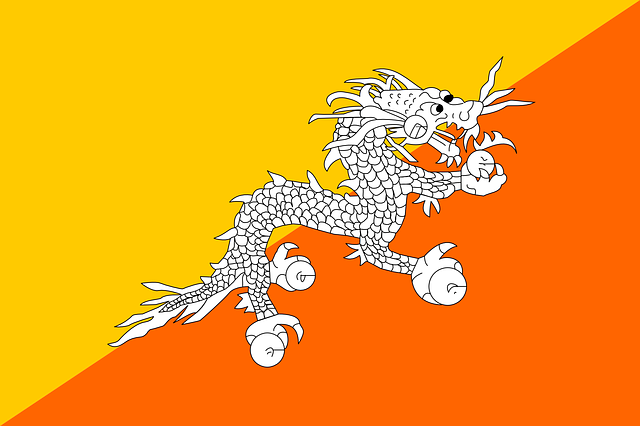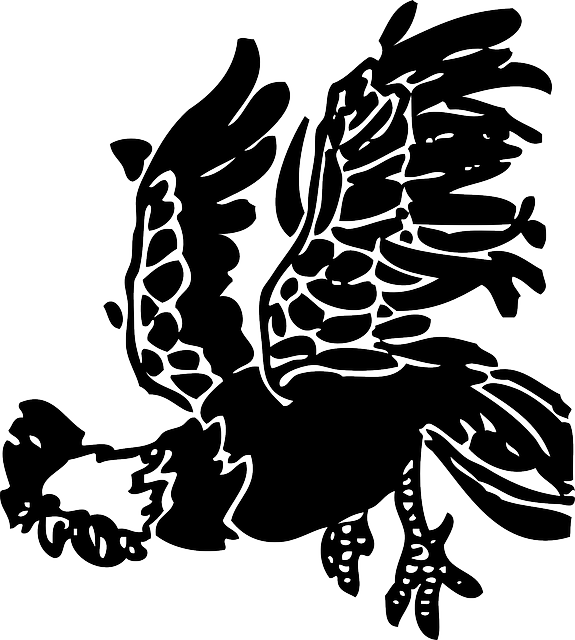ملكية يوليو
|
Kingdom of France
Royaume de France
| |||||||||
|---|---|---|---|---|---|---|---|---|---|
| 1830–1848 | |||||||||
الفهم
Royal Coat of arms
| |||||||||
النشيد: La Parisienne "The Parisian" | |||||||||
|
The French Kingdom in 1839
| |||||||||
| العاصمة | Paris | ||||||||
| اللغات الشائعة | French | ||||||||
| الدين |
Roman Catholicism Calvinism Lutheranism Judaism |
||||||||
| الحكومة | Constitutional monarchy | ||||||||
| King of the French | |||||||||
• 1830–1848 |
Louis Philippe I | ||||||||
| Prime Minister | |||||||||
• 1830 |
Victor de Broglie (first) | ||||||||
• 1848 |
Louis-Mathieu Molé (last) | ||||||||
| التشريع | Parliament | ||||||||
• الغرفة العليا
|
Chamber of Peers | ||||||||
• الغرفة الدنيا
|
Chamber of Deputies | ||||||||
| التاريخ | |||||||||
• July Revolution |
26 July 1830 | ||||||||
• Constitution adopted |
7 August 1830 | ||||||||
• French Revolution |
23 February 1848 | ||||||||
| Currency | French franc | ||||||||
| |||||||||
جزء من عن |
||||||||||||||||||||||||||||||
|---|---|---|---|---|---|---|---|---|---|---|---|---|---|---|---|---|---|---|---|---|---|---|---|---|---|---|---|---|---|---|
|
فرنسا ما قبل التاريخ
|
||||||||||||||||||||||||||||||
|
القديم
|
||||||||||||||||||||||||||||||
|
العصور الوسطى المبكرة
|
||||||||||||||||||||||||||||||
|
العصور الوسطى
|
||||||||||||||||||||||||||||||
|
الحديثة المبكرة
|
||||||||||||||||||||||||||||||
|
القرن 19 الطويل
|
||||||||||||||||||||||||||||||
|
القرن 20
|
||||||||||||||||||||||||||||||
|
موضوعات
|
||||||||||||||||||||||||||||||
| خط زمني | ||||||||||||||||||||||||||||||
| بوابة فرنسا | ||||||||||||||||||||||||||||||
The July Monarchy (بالفرنسية: Monarchie de Juillet) was a liberal constitutional monarchy in France under Louis Philippe I, starting with the July Revolution of 1830 and ending with the Revolution of 1848. It began with the overthrow of the conservative government of Charles X and the House of Bourbon.
Louis Philippe, a member of the more liberal Orléans branch of the House of Bourbon, proclaimed himself as Roi des Français ("King of the French") rather than "King of France", emphasizing the popular origins of his reign. The king promised to follow the "juste milieu", or the middle-of-the-road, avoiding the extremes of either the conservative supporters of Charles X and radicals on the left.
The July Monarchy was dominated by wealthy bourgeoisie and numerous former Napoleonic officials. It followed conservative policies, especially under the influence (1840–48) of François Guizot. The king promoted friendship with Great Britain and sponsored colonial expansion, notably the conquest of Algeria. By 1848, a year in which many European states had a revolution, the king's popularity had collapsed, and he was overthrown.
Overview
Louis Phillipe was pushed to the throne by an alliance between the people of Paris; the republicans, who had set up barricades in the capital; and the liberal bourgeoisie. However, at the end of his reign, the so-called "Citizen King" was overthrown by similar citizen uprisings and use of barricades during the February Revolution of 1848. This resulted in the proclamation of the Second Republic.
Background
Initial period (August 1830 – November 1830)
The symbolic establishment of the new regime
Purge of the Legitimists
The Laffitte government (2 November 1830 – 13 March 1831)
Although Louis-Philippe strongly disagreed with the banker Laffitte and secretly pledged to the duke of Broglie that he would not support him at all, the new President of the Council was tricked into trusting his king.
The February 1831 riots
Civil unrest (Canut Revolt) and repression
The Fieschi attentat (28 July 1835)
The two Molé governments (September 1836 – March 1839)
Second Soult government (May 1839 – February 1840)
The second Thiers cabinet (March – October 1840)
Return of Napoleon's ashes
Colonization of Algeria
The conquest of Algeria, initiated in the last days of the Bourbon Restoration, was now confronted by Abd-el-Kader's raids, punishing Marshal Valée and the duc d'Orléans's expedition to the Portes de Fer in autumn 1839, which had violated the terms of the 1837 Treaty of Tafna between General Bugeaud and Abd-el-Kader. Thiers pushed in favor of colonising of the interior of the country, up to the edges of the desert. He convinced the king, who saw in Algeria an ideal theater for his son to cover the House of Orléans with glory, and persuaded him to send General Bugeaud as first governor general of Algeria. Bugeaud, who would lead harsh repression against the natives, was officially nominated on 29 December 1840, a few days after Thiers' fall.
Middle Eastern affairs, a pretext for Thiers' fall
Thiers supported Mehemet Ali, the pasha of Egypt, in his ambition to constitute a vast Arabian Empire from Egypt to Syria. He tried to intercede in order to have him sign an agreement with the Ottoman Empire, unbeknownst to the four other European powers (Britain, Austria, Prussia and Russia). However, informed of these negotiations, the British Minister of Foreign Affairs, Lord Palmerston, quickly negotiated a treaty between the four powers to sort out the "Eastern Question". When revealed, the London Convention of 15 July 1840 provoked an explosion of patriotic fury: France had been ousted from a zone where it traditionally exercised its influence, while Prussia, which had no interest in it, was associated with the treaty. Although Louis-Philippe pretended to join the general protestations, he knew that he could take advantage of the situation to get rid of Thiers.
The latter pandered tp patriotic feelings by decreeing, on 29 July 1840, a partial mobilization, and by starting, on 13 September 1840, the works on the fortifications of Paris. But France remained passive when, on 2 October 1840, the British navy shelled Beirut. Mehemet Ali was then immediately dismissed as viceroy by the Sultan.
Following long negotiations between the king and Thiers, a compromise was found onسبعة October 1840: France would renounce its support for Mehemet Ali's pretensions in Syria but would declare to the European powers that Egypt should remain at all costs independent. Britain thereafter recognized Mehmet Ali's hereditary rule on Egypt: France had obtained a return to the situation of 1832. Despite this, the rupture between Thiers and Louis-Philippe was now definitive. On 29 October 1840, when Charles de Rémusat presented to the Council of Ministers the draft of the speech of the throne, prepared by Hippolyte Passy, Louis-Philippe found it too aggressive. After a short discussion, Thiers and his associates collectively presented their resignations to the king, who accepted them. On the following day, Louis-Philippe sent for Marshal Soult and Guizot so they could return to Paris as soon as possible.
The Guizot government (1840–1848)
End of the monarchy
After some unrest, the king replaced Guizot by Thiers who advocated repression. Greeted with hostility by the troops in the Carrousel, in front of the Palace of the Tuileries, the king finally decided to abdicate in favor of his grandson, Philippe d'Orléans, entrusting the regency to his daughter-in-law, Hélène de Mecklembourg-Schwerin. His gesture was in vain as the Second Republic was proclaimed on 26 February 1848, on the Place de la Bastille, before the July Column.
Louis-Philippe, who claimed to be the "Citizen King" linked to the country by a popular sovereignty contract on which he founded his legitimacy, did not see that the French people were advocating an enlargement of the electorate, either by a decrease of the electoral tax threshold, or by the establishment of universal suffrage[].
Although the end of the July Monarchy brought France to the brink of civil war, the period was also characterized by an effervescence of artistic and intellectual creation.
انظر أيضاً
- France during the nineteenth century
- Liberalism and radicalism in France
- French art of the 19th century
- French literature of the 19th century
- History of science
- Politics of France
References
- ^ Ronald Aminzade, Ballots and Barricades: Class Formation and Republican Politics in France, 1830-1871 (1993).
للاستزادة
- Aston, Nigel. "Orleanism, 1780–1830," History Today, Oct 1988, Vol. 38 Issue 10, pp 41–47
- Beik, Paul. Louis Philippe and the July Monarchy (1965), short survey
- Collingham, H.A.C. The July Monarchy: A Political History of France, 1830–1848 (Longman, 1988)
- Howarth, T.E.B. Citizen-King: The Life of Louis Philippe, King of the French (1962).
- Jardin, Andre, and Andre-Jean Tudesq. Restoration and Reaction 1815–1848 (The Cambridge History of Modern France) (1988)
- Lucas-Dubreton, J. The Restoration and the July Monarchy (1929)
- Newman, Edgar Leon, and Robert Lawrence Simpson. Historical Dictionary of France from the 1815 Restoration to the Second Empire (Greenwood Press, 1987) online edition
Cultural history
- Chu, Petra ten-Doesschate, and Gabriel P. Weisberg, eds. The popularization of images: Visual culture under the July Monarchy (Princeton University Press, 1994)
- Drescher, Seymour. "America and French Romanticism During the July Monarchy." American Quarterly (1959) 11#1 pp: 3-20. in JSTOR
- Margadant, Jo Burr. "Gender, Vice, and the Political Imaginary in Postrevolutionary France: Reinterpreting the Failure of the July Monarchy, 1830-1848," American Historical Review (1999) 194#5 pp. 1461-1496 in JSTOR
- Marrinan, Michael. Painting politics for Louis-Philippe: art and ideology in Orléanist France, 1830-1848 (Yale University Press, 1988)
- Mellon, Stanley. "The July Monarchy and the Napoleonic Myth." Yale French Studies (1960): 70-78. in JSTOR
Social and economic history
- Charle, Christophe. A Social History of France in the Nineteenth Century (1994)
- Harsin, Jill. Barricades: The War of the Streets in Revolutionary Paris, 1830-1848 (2002)
- Kalman, Julie. "The unyielding wall: Jews and Catholics in Restoration and July monarchy France." French historical studies (2003) 26#4 pp: 661-686.
- Pinkney, David H. "Laissez-Fair or Intervention? Labor Policy in the First Months of the July Monarchy." in French Historical Studies, Vol. 3. No. 1. (Spring, 1963), pp. 123–128.
- Price, Roger. A Social History of Nineteenth-Century France (1987) 403pp. 403 pgs. online edition
- Stearns, Peter N. "Patterns of industrial strike activity in France during the July Monarchy." American Historical Review (1965): 371-394. in JSTOR
| مشاع الفهم فيه ميديا متعلقة بموضوع [[commons: Category:July Monarchy
| July Monarchy ]]. |
















